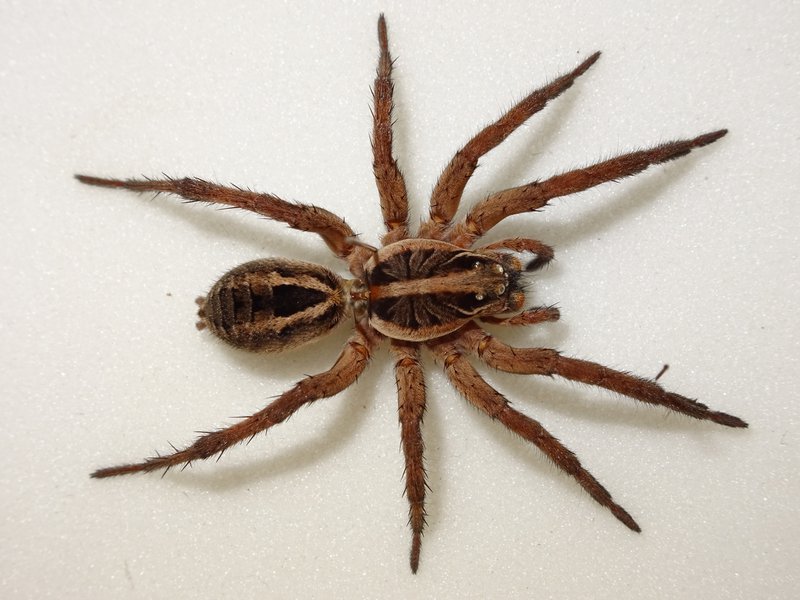Are Wolf Spiders Poisonous? Debunking the Myths and Facts
Misconceptions often surround the world of arachnids, particularly when it comes to spider venom. Many people wonder, “Are wolf spiders poisonous?” In this comprehensive guide, we’ll separate fact from fiction, exploring the true nature of wolf spiders and their venomous capabilities.
Are Wolf Spiders Poisonous?
Defining “Poisonous”
Before we dive into the intriguing world of wolf spiders, let’s clarify a common misunderstanding. The terms “venomous” and “poisonous” are not synonymous. Venomous creatures, like spiders, deliver venom actively, usually through a bite or sting, while poisonous creatures are harmful when touched or ingested.
Understanding Wolf Spider Venom
Wolf spiders indeed possess venom, a crucial aspect of their predatory prowess. This venom serves a specific purpose in capturing and incapacitating their prey. However, it’s essential to recognize that wolf spiders are not considered poisonous because their venom is not harmful when touched or ingested.
The Venom of Wolf Spiders
Components of Venom
To understand wolf spiders better, let’s delve into the components of their venom. Wolf spider venom comprises a complex mixture of proteins and enzymes, each with a specific role in immobilizing and beginning the digestion of their prey.
Venom Effects
on Prey Wolf spider venom plays a critical role in the spider’s survival. When they bite their prey, venom is injected, rapidly subduing and beginning the digestion process. The venom’s paralyzing effect ensures that the prey remains immobilized, making it easier for the spider to feed.
Symptoms of a Wolf Spider Bite
Typical Reactions
Now that we understand the role of wolf spider venom in predation let’s address a common concern: what happens when a wolf spider bites a human? In most cases, a wolf spider bite results in mild and self-limiting symptoms. Typical reactions include localized pain, redness, and swelling around the bite area. These symptoms are usually manageable with basic first aid and do not pose a significant threat to health.
Allergic Reactions
While it’s essential to emphasize that wolf spider bites are not typically dangerous, it’s worth noting that, as with any insect or arachnid bite, some individuals may experience allergic reactions. Allergic responses can range from moderate itching and hives to more severe symptoms like difficulty breathing or swelling of the face and throat. Such reactions are exceedingly rare but warrant immediate medical attention.

Identifying Wolf Spiders
Physical Characteristics
To alleviate concerns about wolf spiders, it’s useful to be able to identify them accurately. Wolf spiders exhibit distinctive physical characteristics that set them apart from other spider species. These include robust, hairy bodies, eight dark eyes arranged in three rows, and strong, spiny legs. Additionally, wolf spiders are typically brown or gray in color.
Common Habitats and Behaviors
Understanding where and how wolf spiders typically dwell can also contribute to a sense of reassurance. These arachnids are often found in grassy or wooded areas, under rocks, and in burrows. Unlike some spiders, wolf spiders do not spin intricate webs; instead, they actively hunt their prey.
Dealing with Wolf Spiders
Preventing Bites To avoid wolf spider encounters and potential bites, consider the following precautions:
The Ecological Role of Wolf Spiders
Predators in Nature
While concerns about wolf spider bites may arise, it’s essential to recognize their significant role in ecosystems. Wolf spiders are natural predators that help control populations of insects and other small creatures. They play a vital part in maintaining ecological balance by keeping pest populations in check.
Coexisting with Wolf Spiders
Appreciating Nature’s Pest Control
Rather than fearing wolf spiders, consider them as nature’s pest control experts. Their presence can actually reduce the need for chemical pesticides in and around your home, contributing to a healthier environment.
Non-Lethal Removal
If you find a wolf spider indoors and wish to relocate it, use a glass and a piece of paper to gently capture and release it outside. This non-lethal approach allows you to safely remove the spider without harming it.
Frequently Asked Questions (FAQs) About Wolf Spiders
Are wolf spider bites deadly to humans?
No, wolf spider bites are not deadly to humans. They typically result in mild, self-limiting symptoms.
2: What should I do if I get bitten by a wolf spider?
Clean the wound, apply a cold compress, and take over-the-counter pain relievers. Seek medical attention only if you suspect an allergic reaction or severe symptoms.
3: How can I identify a wolf spider?
Look for their robust, hairy bodies, eight dark eyes in three rows, and strong, spiny legs. They are typically brown or gray.
4: Are there dangerous species of wolf spiders?
While most wolf spiders are harmless, some species have more potent venom. However, their bites are still not lethal to humans.
5: Do wolf spiders live in webs?
No, wolf spiders do not create intricate webs. They actively hunt their prey.
Conclusion
Promoting Coexistence In closing, understanding the truth about wolf spiders—being venomous but not dangerous to humans—is key to coexisting peacefully with these arachnids. Rather than fearing them, appreciate their vital role in our ecosystems as natural pest controllers.




